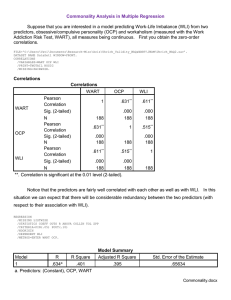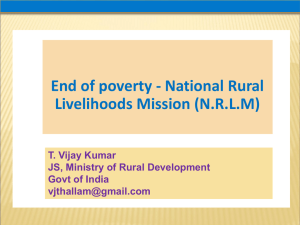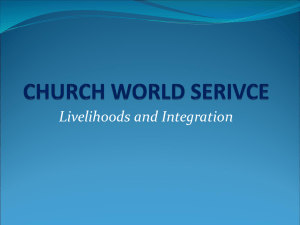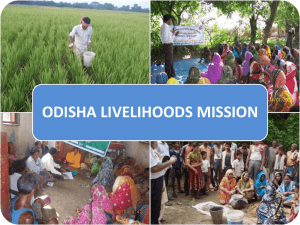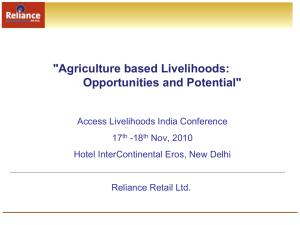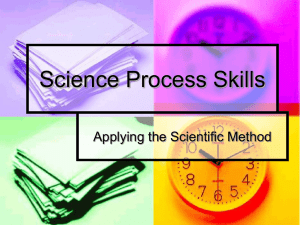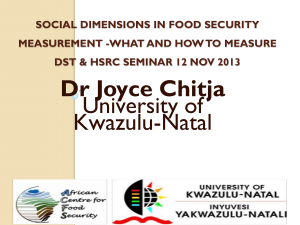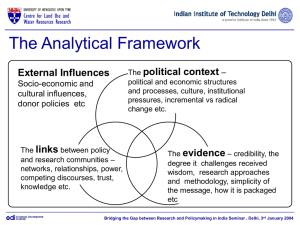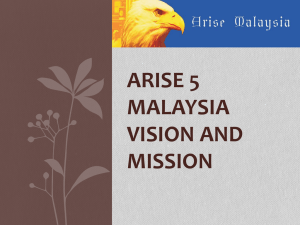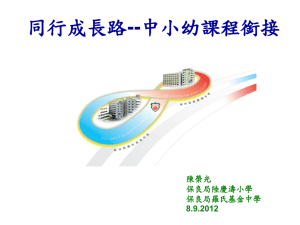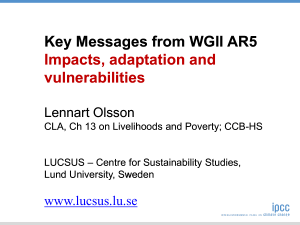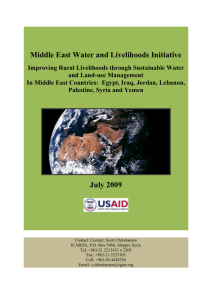Decision Support Tools & Models
advertisement
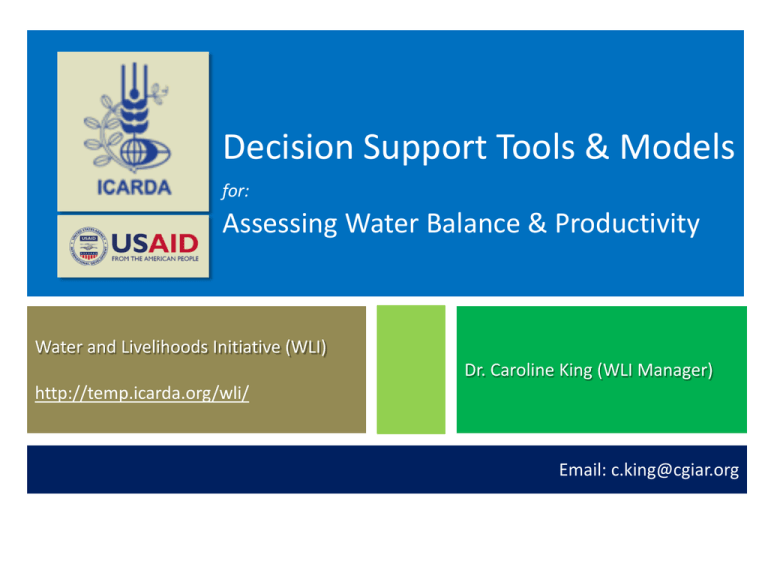
Decision Support Tools & Models for: Assessing Water Balance & Productivity Water and Livelihoods Initiative (WLI) Dr. Caroline King (WLI Manager) http://temp.icarda.org/wli/ Email: c.king@cgiar.org WLI Objectives & Outputs NARRATIVE Goal The goal of WLI is to improve the livelihoods of households and communities in the benchmark sites of the participating countries by increasing economic, social and educational opportunities through addressing the key priority issues identified in each country. Purpose To pilot test a sustainable and integrated water, land use and livelihoods strategy in the benchmark sites for scaling up, which will optimize new and income generating crop and livestock activities. Outputs 1. Integrated water and land-use strategies for policy-making, tools for sustainable benchmark management and organizational mechanisms for community inclusion at the benchmark sites. 2. Enhanced knowledge, skills and qualifications for key stakeholders in the benchmark sites. 3. Improved rural livelihoods of farmers in the benchmark sites through the adoption of sustainable land and water management practices and livelihood strategies WORKSHOP PURPOSE: To identify scope for available watershed and basin-scale water balance assessments to include scenarios demonstrating improvements in integrated management of land, water and livelihoods to be achieved through upscaling of WLI pilot-tested strategies and technologies potential water savings in agriculture agricultural water use min ETP for food production industry domestic 1950 1970 1990 2010 2030 2050 Cropping Pattern Ha cereals: Ha horticulture: N/ha livestock: Annual Water Use m3/yr Future Mgt Strategies Present A STRATEGIC VIEW w.out impr. mgt with impr. mgt Cropping Pattern Ha cereals: Ha horticulture: N/ha livestock: Cropping Pattern Ha cereals: Ha horticulture: N/ha livestock: Annual Water Annual Water Use 3 Use m /yr m3/yr Allocation to Ag. reuse groundwater Surface inflows rainfed Other Sectors domestic industrial (ecological flows) > Negative balance? > Positive balance? Workshop Objectives Review available assessments of present and future water availability and use at the watershed and basin-scale and identify scope for updates to reflect the full potential of improvements in on-farm land and water management > Inform regional decision-makers and other key stakeholders at the benchmark sites of the relevance and potential further use of outputs from decision support tools to evaluate options for improved management of land, water and livelihoods > Stimulate knowledge exchange and research collaboration amongst WLI research teams using and developing tools to support integrated water and land-use strategies with key stakeholders Results Anticipated Outputs > Enhanced Annual Reports, Country Research Reports and PPTs from 8 countries and regional team > Short workshop report including list of participants > Materials online for other interested researchers to benefit from Outcomes > WLI thematic research group on decision support tools and models activated > WLI thematic research group on water use efficiency activated > Improved connection of WLI pilot testing to strategic level decision-making and improved outscaling strategies for integrated land and water management > Improved management of land, water and livelihoods in WLI countries 1. ….WHAT IS A LIVELIHOOD? (see Workshop Report on WLI Website) 2. WHAT IS AN IMPROVED LIVELIHOOD? 3. HOW LONG WILL IT TAKE TO IMPROVE RURAL LIVELIHOODS? 4. HOW WILL WE KNOW THAT IT IMPROVED? 5. HOW WILL WE KNOW THAT THE IMPROVEMENT RESULTED FROM THE WLI PILOT TESTING ACTIVITY? Pragmatic Indicators of Water & Livelihoods? (/sustainable water and livelihoods?) CAPITAL/ ASSETS INDICATOR HUMAN Key stakeholders ‘ short-term training 2012 F T F F T F w e b Key stakeholders ‘ knowledge w e b PHYSICAL Agricultural land (ha, tons & value of crops) Land under improved management 2013 F T F F T F w e b NATURAL Water availability at the watershed level Water use in agriculture w e b F T F FINANCIAL Income from agriculture w e b F T F F T F w e b F T F Total household income SOCIAL Associations (producers’ assns, WUAs, etc) (All indicators gender disaggregated) F T F 2014 F T F w e b w e b F T F w e b F T F F T F w e b F T F F T F THANKYOU
